
Branching Path: Bryan Vitale's Top 10 Games of 2019
It's the end of another year, already. I'm not sure where the time went. Every time it comes time to write up my top ten games, I'm always a bit in awe of how fast 12 months can just fly on by. Since this year was in a lot of ways a holding pattern while waiting for consoles and games coming in 2020, perhaps that contributed to 2019 feeling a bit like a filler year before we collectively shift into high gear in 2020. At least, for me.
That doesn't mean 2019 was bereft of great games. In fact, I got to try out a few series that I hadn't originally considered playing heading into the year, and I revisited a few re-releases of titles I hadn't played in a long time. The long-awaited Kingdom Hearts III finally arrived in January, and was bound to end up on this list almost regardless of how it turned out, the momentum of years of meandering to the inevitable conclusion would have required a catastrophe to totally sink. The Division 2 and Outward also snuck in as early year releases, carried mostly by the strength of their respective multiplayer components.
Trails of Cold Steel III and The Outer Worlds come from developers from both sides of the world that I've come to predictably look forward to everything they release, while Greedfall surprised me as something I wasn't expecting to enjoy as much as I did. The top titles on my list include games that I ended up playing on a whim along with those that I had been looking forward to for a long long time.
10) Final Fantasy VIII Remastered
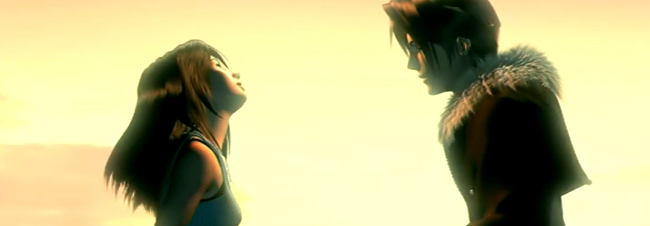
It feels a bit like cheating to include a remaster on my top ten list but perhaps no one will mind much if I slot it here at the last spot -- a similar trick that I used to place an early access game last year. It's my personal belief that good games are good games and cannot simply age out of being worth playing...but that doesn't mean a good touchup goes unappreciated. Final Fantasy VIII Remastered isn't a perfect version of the original, but it's enough to now match how Final Fantasy VIII 'looks' like in my memory. There are niggling issues with 8-directional movement and rumble -- likely due to having to recreate the whole package from the Eidos port from way back when, but these pitfalls aren't enough to deter me from personally considering the Remastered edition the best way to re-experience one of my favorite games from my childhood.
9) The Outer Worlds
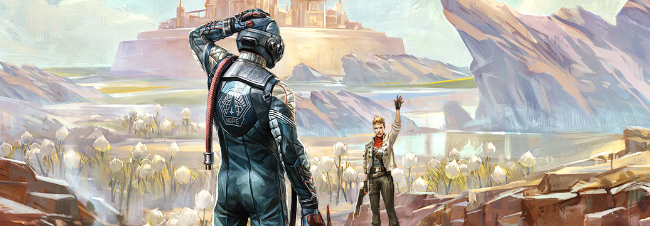
Less than a year passed between announcement and release for The Outer Worlds and in a year where Bethesda and Bioware took on different sorts of projects with their most recent games, Outer Worlds felt like a nostalgic callback to the western-styled RPGs from 10 or so years ago. On top of that, it's always exciting to see new IPs succeed in a field full of franchise releases and sequels. Part Fallout, part Mass Effect, and half its own thing, Outer Worlds wasn't something that I found myself 100% enamored with, but appreciative of all the same. While it was a bit too short and limited in scope to really have a lasting impact, maybe next year's DLC release will bolster my opinion of it somewhat. As it stands, Outer Worlds is merely a good, not great, Obsidian RPG. It was comforting and familiar in the way returning to any of my favorite games can feel, only this time it was for something brand new.
8) Trails of Cold Steel III
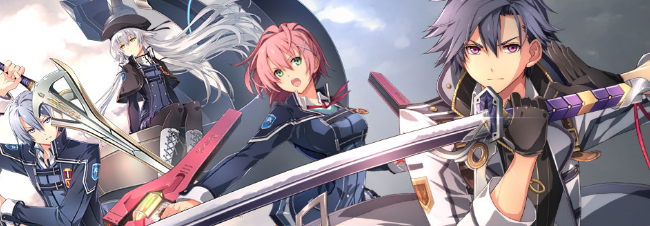
I've recently been iffy on Falcom's 'Legend of Heroes' series. I've kept on top of the games released in English, aware that it will be a long time, if ever, that I am able to play the full suite of interlocking RPGs. I was very high on the three "Sky" games, while less positive on the two preceding "Cold Steel" titles. Trails of Cold Steel III, for better or worse, ended up pretty much being exactly what I expected out of it, but similar to Trails in the Sky the 3rd, it benefits from utilizing an established cast of characters and a setting that the game can expect me to be very familiar with. Even if it also expected me to be familiar with a pair of games that haven't come out in English.
It's so very, very difficult to discuss individual Trails games in isolation. They rely so entirely on world-building built out of a decade+ of releases, so I never quite know how to judge my reception to any individual entry, as they are each extensions of what had come before. To the best that I can, though, Trails of Cold Steel III is a charming, charismatic JRPG that feels familiar and true to some of my favorite games from my childhood. I just hope we don't have to wait too long to see the conclusion after quite a cliffhanger.
7) The Division 2
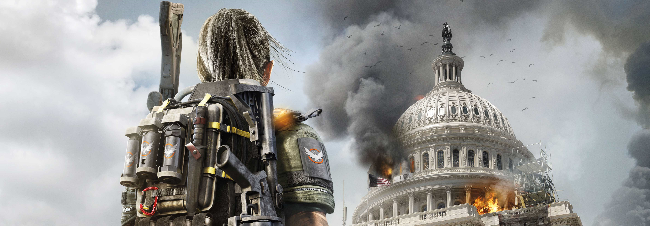
This is a surprise entry on the list. I haven't once been super into any Ubisoft service-style game, and I feel like I would more readily take to something like Assassin's Creed Odyssey before I found myself enjoying The Division 2, but it turns out the opposite ended up happening. To be completely honest, a friend of mine ended up getting the Division 2 for free with a new GPU, and asked if I wanted to play. On a whim, I paid full price for the looter-shooter and happily ended up putting more than 100 hours into it.
Division 2, on its surface, looks like any number of other games with the 'Tom Clancy' label on it. That is, overly-patriotic faff with an uneven narrative that throws a lot of smart-sounding combat jargon at the player without really establishing any consistent tone. Putting that all aside though was a colorful game that managed to be visually striking despite being set in a summery urban setting. Museums, aquariums, and airports managed to be distinct and varied despite the odds, and on top of that was a truly engaging set of build and gear styles that really encouraged a team of players to specialize into unique roles. I found myself settling into a skill-based role -- focusing on quick use of drones and turrets, while I partnered with a DPS shotgun and light machinegun user. Now, I don't still regularly go back to Division 2, but I'll keep it installed to see if interesting new environments or other additions are to be had in 2020 as the game heads into year 2.
6) Kingdom Hearts III
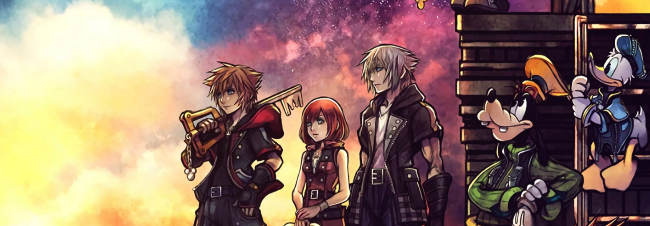
After years and years of anticipation, Kingdom Hearts III had an impossible task of living up to sky-high expectations and, maybe predictably, it wasn't the magnum opus it had to be to satisfy all of them. Despite all that, it provided a sense of nostalgic closure, which is some nebulous term I'm inventing to try to justify my positive takeaway from a game that's very easy to be very critical of. Kingdom Hearts III is not a game I could really fairly judge in any formal capacity -- when I booted it up for the first time, I felt like the same kid who saw commercials for the original game back in middle school.
It would be easy to be cynical, to grow out of Kingdom Hearts. To divorce who I was as a kid to who I am now. But instead of that happening, I found myself instead allowing nostalgia to take over, and just be that kid again. A bit cliche, I know, but I grew up with Kingdom Hearts. Kingdom Hearts III has a simple brand of earnest storytelling that, yes, can be convoluted by melodramatic nonsense. But at the core of it all is a sincere tale of good versus evil that I have yet to grow tired of.
5) Outward
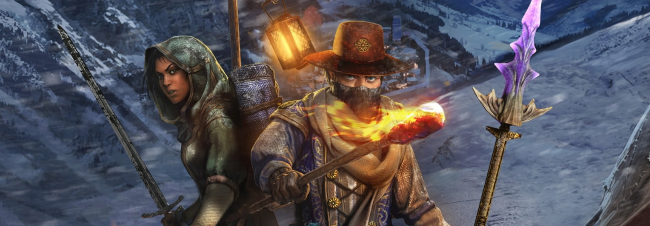
This is another entry on the list that I wasn't expecting or anticipating heading into the year. However, when so many games are released each year with RPG sensibilities or systems (ie "every game is an RPG"), to find one that intentionally strips some of what we expect from the genre away in service of a focused vision is notable all on its own. It also helps that I am immediately a sucker for RPGs with strong co-operative mechanics. Outward is a game that basically throws most sense of quality-of-life out the window, and I think it succeeds because of that.
Outward does away with fast travel, minimap, requires the player to manage temperature, weapon durability, hunger/thirst, and has a core mechanic about lugging a backpack around to carry everything that's needed to manage all these factors. It sounds like an absolute chore, and in a way it is, but not in a way that affected my enjoyment. Having to get together with my co-op partner to plan out excursions into the arid desert, find food to not starve, to see plans come together is rewarding in a way that feels altogether different from defeating a powerful boss or conquering a long dungeon. It's not something that I think I would enjoy a whole lot on my own, but being able to split the burden incurred by these inconveniences without diminishing the enjoyment of overcoming them worked splendidly. Long story short, I hope the next decade gives us some more cooperative RPGs.
4) GreedFall
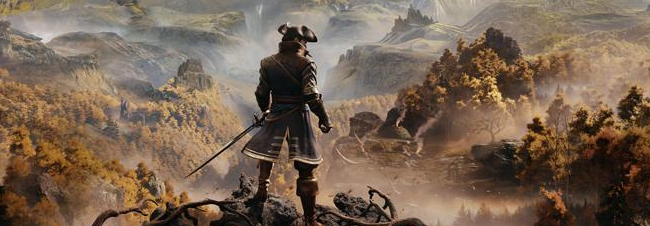
Placing Greedfall up this high is probably a mistake. If I was inclined, I could probably list out a couple dozen shortcomings and issues that make it 'objectively' worse than probably any other game on this list. However, I don't play games in a vacuum -- I don't start at ground zero with each new experience. Greedfall is the epitome of "right place, right time" for me. Similar to how The Outer Worlds felt like a throwback to RPGs from ten years ago like Fallout 3 and Mass Effect, Greedfall did as well. The difference is that Greedfall resonated with me far more.
Greedfall does two things that I think are commendable. The way it incorporates the 5 companion party members into quests and the main narrative is on a level above any other RPG I've played (except perhaps 2018's Pathfinder: Kingmaker). In many similar games, companions or party members are almost treated like extensions of the player's "loadout", effectively 2 or so pieces of gear that you slot in and out on a whim, with only the occasional quest specifically treating them like actual characters. Greedfall has its party members interact more deeply with the narrative at play, affecting where you're allowed to go, which fights you can avoid, and the background information made available to you. It's something that many games purport to accomplish, but Greedfall is one of the first to come really close to succeeding.
Greedfall also deserves a shout out for its invented language for the natives on Teer Fradee. It never once undermines the foreign nature of the environment by providing the player a translator or dictionary, instead relying on the player's intuition and just a few context clues to piece together the important details. I'm definitely eager to see if developer Spiders can take another step forward with whatever is next for them.
3) Disco Elysium
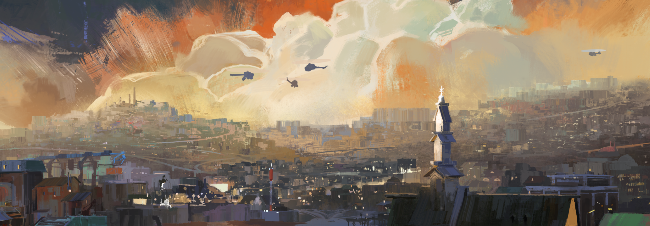
I had no idea what to expect from Disco Elysium. It wasn't on my radar at all until positive word of mouth was so overwhelming that I figured I owed myself to play it, and I'm very glad I did. Disco Elysium doesn't really compare to any other RPG I've played. Some people call it another take on the modern CRPG, likely simply due to the isometric perspective, I feel, but to me, the similarities only seem skin deep.
Disco Elysium was the first game in a long time that literally had me laugh out loud, and managed to do this without some sort of overt slapstick or comic relief intent. It was also one of the most open-ended RPG experiences that I've ever played (that is, until the last few hours anyway). The combinations of a who-done-it with RPG sensibilities is an eclectic combination that just works. It's also a game that isn't afraid to be sour and messy, featuring a run-down protagonist and set in a city scarred by strife and war. Yet it does all of this without ever remaining too overly bleak. Whether it's self-referential mocking of enumerated dialogue options (of which Disco Elysium is built upon) or wacky situations involving karaoke, Disco manages to be simply entertaining when it needs to be, while never letting go of the more contemplative and volatile themes woven throughout.
Disco Elysium ranks high on my list mainly for how unique it is compared to everything else I've played from this year. An evocative artstyle, inventive setting, and impressive RPG implementation make it one of the clear highlights of the year for me.
2) Age of Empires II: Definitive Edition
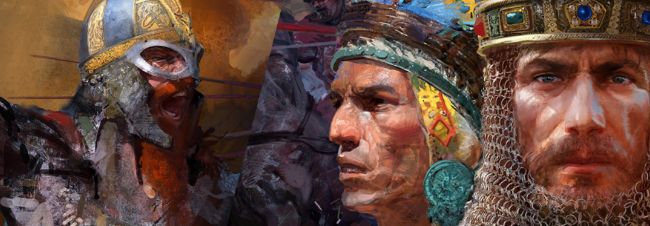
This time I have a remaster in my second slot, and I'm not apologizing for it. I had played hundreds of hours of Age of Empires II as a kid and never really anticipated going back to it. However, with Xbox Game Pass on PC and a crazy amount of new content to dive into, I soon found it installed and had sunk over 100 hours into a game both familiar and new.
I was aware of the campaigns and content that had begun to release with 2013's Age of Empires II HD Edition, starting with The Forgotten, but I never really found myself too enthused by the prospect of playing through these gimmicky, fan-mod-like campaigns. However, Age of Empires II: Definitive Edition gives these expansions the polish that they needed and even adds more on top of that. Altogether, the amount of single-player RTS content available in AoEII:DE is staggering, It's as if one of my favorite games got a sequel 20 years later.
The DE doesn't just polish and add in more stories into the campaigns, but also offers improved quality-of-life such as being able to exclude villagers from unit selection, or automatically re-plant farms. New units and civilizations are added back into old campaigns where they would make sense, and last but not least -- the new building destruction animations never get old. I can easily see myself playing through each 'new' campaign to completion in the early part of 2020.
1) Fire Emblem: Three Houses
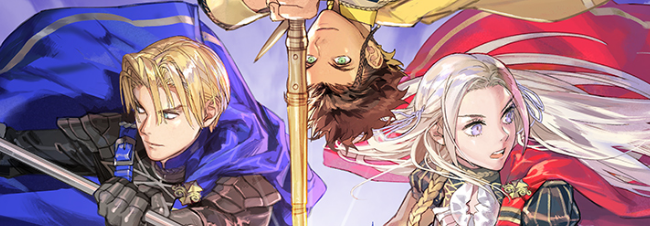
Fire Emblem: Three Houses is a remarkable achievement. In a decade when Fire Emblem: Awakening almost split the fanbase in two, for Three Houses to unite fans both new and lapsed is a testament to its quality and the execution of its vision. Three Houses backs off just slightly on the dating and romance aspects without abandoning them and incorporates a larger focus on world-building, adds in some neat new battalion and free-roam features and retains the quality-of-life features established over the past several entries, and the result speaks for itself. As someone who hadn't been too into Fire Emblem since 2007's Radiant Dawn, Three Houses felt like some sort of homecoming.
The addition of gambits and battalions seemed superfluous at first, but shine on the more difficult gameplay modes. Having pretty much all of the characters available upfront instead of mid-chapter recruitment pairs well with the character-driven narrative, providing a lot of depth to the world and gives a greater attachment to each house. The decision to split the game into 4 distinct routes, each focusing on different parts of the world, different segments of the cast, and different aspects of the greater setting, is a gimmick that absolutely pays off. No one aspect of the game is delivered to the player in an awkward, overly mechanical fashion. Instead, each facet of Fodlan and surrounding countries is organically introduced (or sidestepped) as it becomes relevant (or not) on that particular route. It means that each playthrough on a distinct route reveals another layer than wasn't spotlighted on a previous path -- it's not just swapping out which lord is the protagonist. Not only is it an excellent way to enhance replayability, but it helps make Three Houses's world feel more realized.
I don't think Three Houses unanimously succeeded in everything: Lost Items, in particular, feel undercooked and monastery segments can drag if I'm being a completionist, but these are nitpicks against everything Three Houses does well. Three Houses was the first Fire Emblem game I was enjoying enough to attempt and complete Maddening difficulty, which only made me more fond of it. There may be some recency bias at play here, but if I had to pick a favorite Fire Emblem game, I would imagine Three Houses would have to be it.